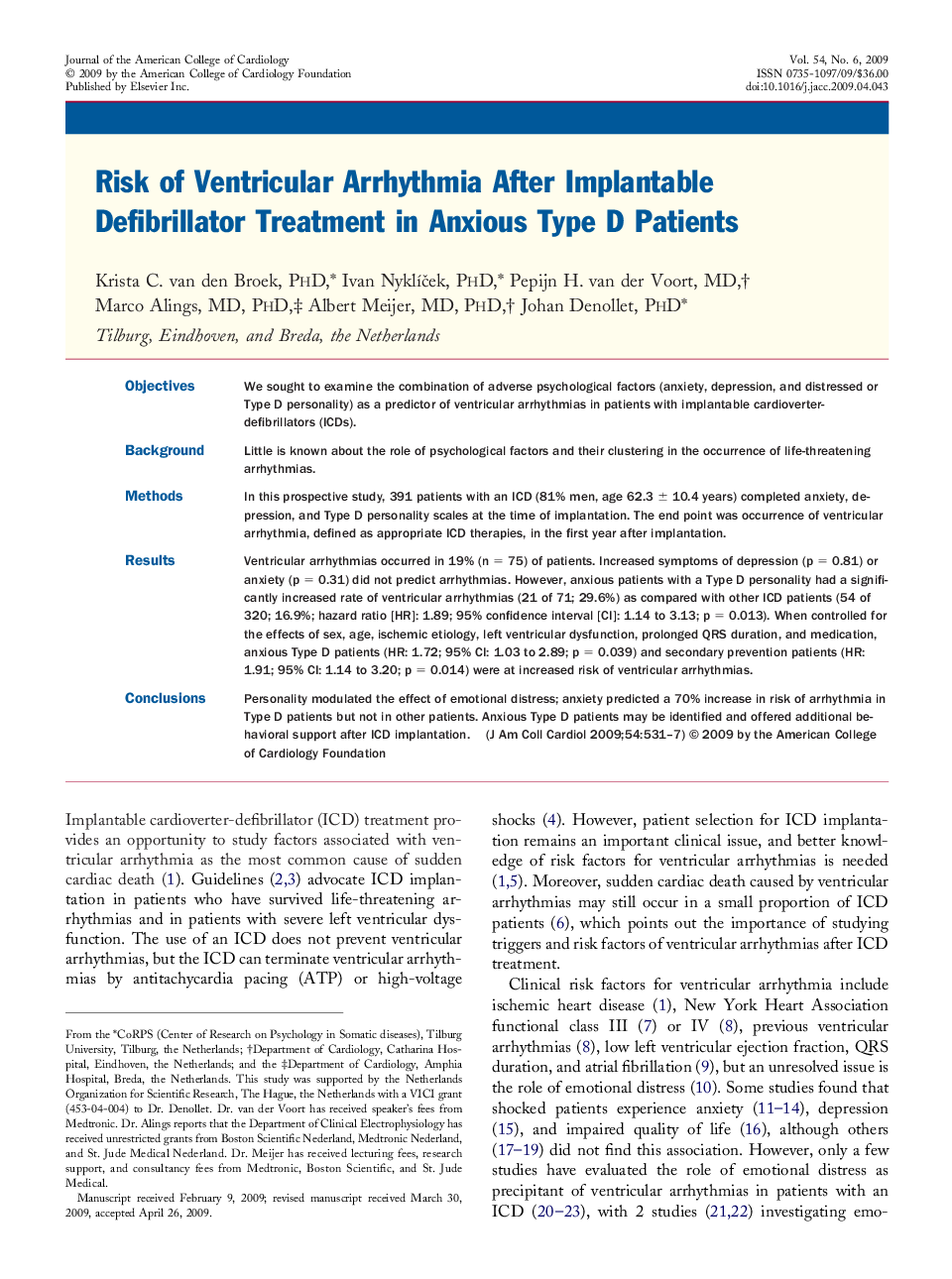| کد مقاله | کد نشریه | سال انتشار | مقاله انگلیسی | نسخه تمام متن |
|---|---|---|---|---|
| 2950684 | 1577357 | 2009 | 7 صفحه PDF | دانلود رایگان |

ObjectivesWe sought to examine the combination of adverse psychological factors (anxiety, depression, and distressed or Type D personality) as a predictor of ventricular arrhythmias in patients with implantable cardioverter-defibrillators (ICDs).BackgroundLittle is known about the role of psychological factors and their clustering in the occurrence of life-threatening arrhythmias.MethodsIn this prospective study, 391 patients with an ICD (81% men, age 62.3 ± 10.4 years) completed anxiety, depression, and Type D personality scales at the time of implantation. The end point was occurrence of ventricular arrhythmia, defined as appropriate ICD therapies, in the first year after implantation.ResultsVentricular arrhythmias occurred in 19% (n = 75) of patients. Increased symptoms of depression (p = 0.81) or anxiety (p = 0.31) did not predict arrhythmias. However, anxious patients with a Type D personality had a significantly increased rate of ventricular arrhythmias (21 of 71; 29.6%) as compared with other ICD patients (54 of 320; 16.9%; hazard ratio [HR]: 1.89; 95% confidence interval [CI]: 1.14 to 3.13; p = 0.013). When controlled for the effects of sex, age, ischemic etiology, left ventricular dysfunction, prolonged QRS duration, and medication, anxious Type D patients (HR: 1.72; 95% CI: 1.03 to 2.89; p = 0.039) and secondary prevention patients (HR: 1.91; 95% CI: 1.14 to 3.20; p = 0.014) were at increased risk of ventricular arrhythmias.ConclusionsPersonality modulated the effect of emotional distress; anxiety predicted a 70% increase in risk of arrhythmia in Type D patients but not in other patients. Anxious Type D patients may be identified and offered additional behavioral support after ICD implantation.
Journal: Journal of the American College of Cardiology - Volume 54, Issue 6, 4 August 2009, Pages 531–537